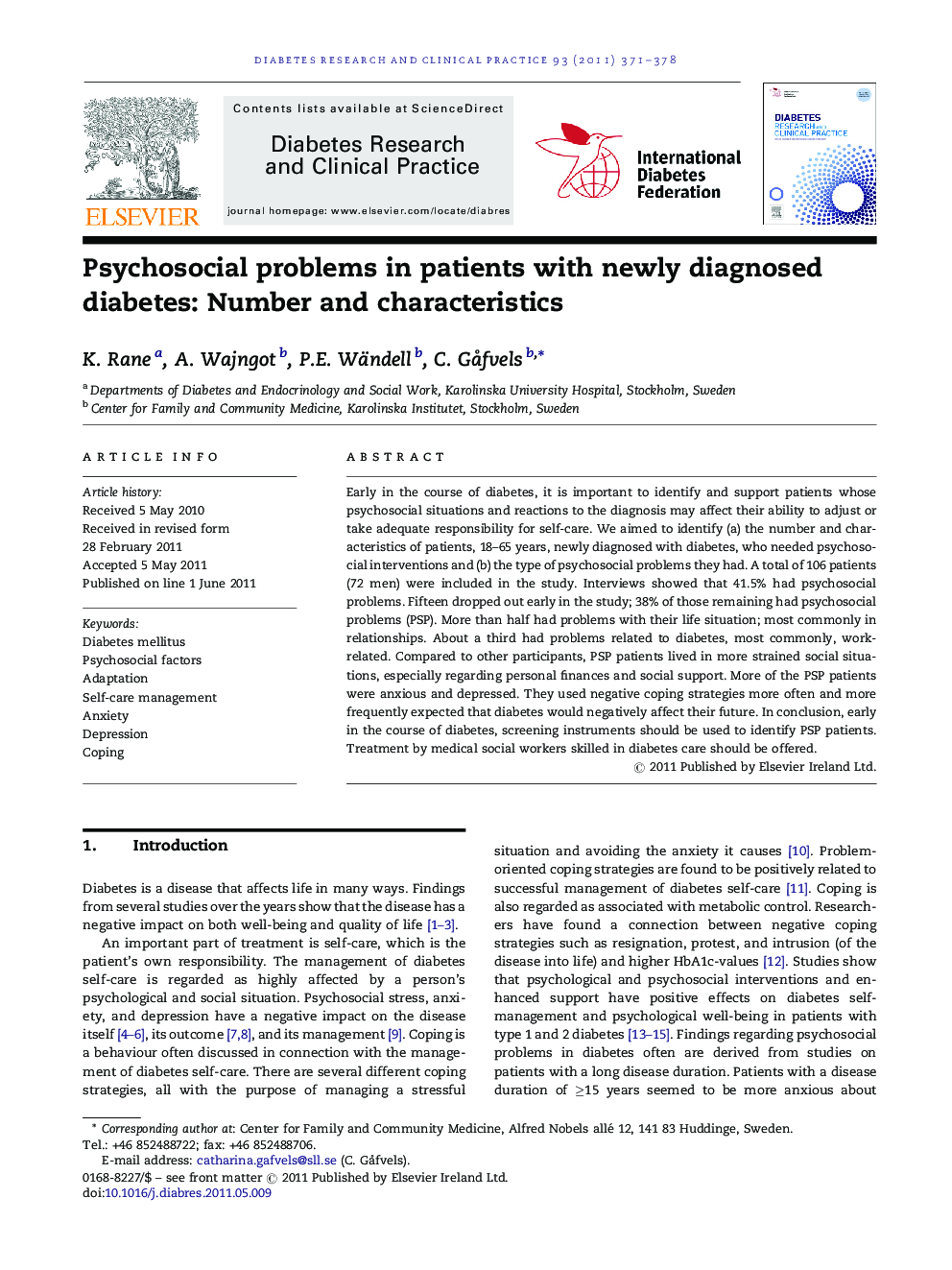| کد مقاله | کد نشریه | سال انتشار | مقاله انگلیسی | نسخه تمام متن |
|---|---|---|---|---|
| 5900522 | 1155648 | 2011 | 8 صفحه PDF | دانلود رایگان |

Early in the course of diabetes, it is important to identify and support patients whose psychosocial situations and reactions to the diagnosis may affect their ability to adjust or take adequate responsibility for self-care. We aimed to identify (a) the number and characteristics of patients, 18-65 years, newly diagnosed with diabetes, who needed psychosocial interventions and (b) the type of psychosocial problems they had. A total of 106 patients (72 men) were included in the study. Interviews showed that 41.5% had psychosocial problems. Fifteen dropped out early in the study; 38% of those remaining had psychosocial problems (PSP). More than half had problems with their life situation; most commonly in relationships. About a third had problems related to diabetes, most commonly, work-related. Compared to other participants, PSP patients lived in more strained social situations, especially regarding personal finances and social support. More of the PSP patients were anxious and depressed. They used negative coping strategies more often and more frequently expected that diabetes would negatively affect their future. In conclusion, early in the course of diabetes, screening instruments should be used to identify PSP patients. Treatment by medical social workers skilled in diabetes care should be offered.
Journal: Diabetes Research and Clinical Practice - Volume 93, Issue 3, September 2011, Pages 371-378